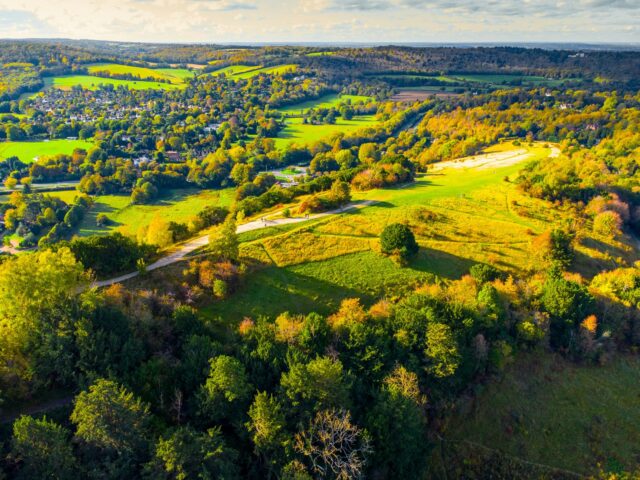Property owners who don’t want to be turfed off their land by the government face being effectively punished by a compulsory purchase order (eminent domain) paying less than the open market rate for massive development projects wanted by the state to house the soaring, immigration-fuelled population.
Britain’s new Labour government is set to give local council the power to buy ‘Green Belt’ land, 65 per cent of which is farms, at a special new below-theoretical market price if the owner refuses to sell up. The change in rules comes as the state moves to rapidly embark on housebuilding to deal with the mass migration-driven population explosion, which has resulted in a supply crunch and vastly inflated home prices.
To overcome the government policy-created shortage, the state is now eyeing Britain’s Green Belt land, originally protected from development since around the time of the Second World War to guarantee easy access to green spaces for urban dwellers and to stop urban sprawl destroying the countryside in large swathes of the nation altogether. Attacking the Green Belt remains deeply controversial, and many farmers and landowners may not wish to be ejected from their own land without a choice, but the state at least has a way to make it cheaper for itself.
Land prices vary considerably depending on their potential future use. Remote agricultural land will be priced as just that, while land presently in use for farming but next to a growing city will command a premium, as the buyer would stand to make considerable profit on the sale of future homes.
As things stand now, while Green Belt land is by definition close to the most profitable cities, it is generally priced as agricultural land as planning rules classify it as unsuitable for building. But if that were to change, prices would soar to reflect demand, which is presumably precisely what the government wishes to prevent.
Per an approving report in The Times, councils are to be awarded the power to buy newly available for development land at the agricultural value, even though, in the words of the 1961 government law permitting compulsory purchase, it would not be “the amount which the land if sold in the open market by a willing seller might be expected to realise”.
The Times admits: “Those that refuse to sell in parts of the country where there is the greatest housing need could find their land bought off them at a ‘benchmark’ value that would be lower than the market value of similar sites outside of the green belt.”
Publications instinctively in favour of the seizing of private property have characterised this change in the rules as a reasonable move by the government to save itself from “overpaying” for land. Another reports that it is a bid to “prevent landowners from cashing in on sites that would previously have been ineligible for development”, as if any of this was remotely their fault, rather than facets of market inefficiency created by layers upon layers of government rules.
The Campaign for Rural England (CPRE) advocates for the Green Belt, and states any development in this long-defined area should take place in what’s known as ‘Brown Field’ locations first. These may be large, now disused facilities that pre-dated the Green Belt designations in the 1930s and 40s such as airfields, hospitals, and factories.
The CPRE responded to the recent news the new left-wing government was changing the planning regulations with caution, stating: “Our Green Belts are the countryside next door for millions of people, and by protecting and enhancing these green spaces around our towns and cities we can address multiple environmental crises at once, leaving space for farming, climate mitigation, wildlife, and access to nature… Brownfield-first is the gold standard in sustainable development. It protects green spaces, ensures houses are built close to schools, shops and transport, and can breathe new life into these empty spaces.”
They had previously said: “The Green Belt is in the crosshairs of huge corporate housebuilders, developers and lobbyists who see it as a barrier to profit”, neatly underlining the idea that while the state may be forcing historically protected land into sale, in most cases it will be private property developers getting the land cheap and profiting from the policy.
The United Kingdom has some of the least value-for-money housing in the developed world, a function of the differential between soaring demand from its rising population and new supply being unable to keep up. The price of property had fallen consistently through the Victorian era, making a family home more and more affordable for all classes of society, until the Great War. With peaks and troughs along the way, property prices have steadily increased ever since.
Housebuilding has become someone of a political football, but generally speaking the discussion has always focussed on the supply side, and never on demand, given Westminster’s total aversion to reducing immigration.
Other factors have also had an impact: the Conservative Party has given the appearance of being massively influenced by its predominantly older, settled, home-owner pensioner voting demographic to not take any policy decisions that would cause house prices, and consequently their own wealth, to tumble. Meanwhile, the party has also been a recipient of political donations from house builders and housebuilding-adjacent firms, themselves benefitting from high sales prices on newly completed units in a situation of constricted supply.

COMMENTS
Please let us know if you're having issues with commenting.